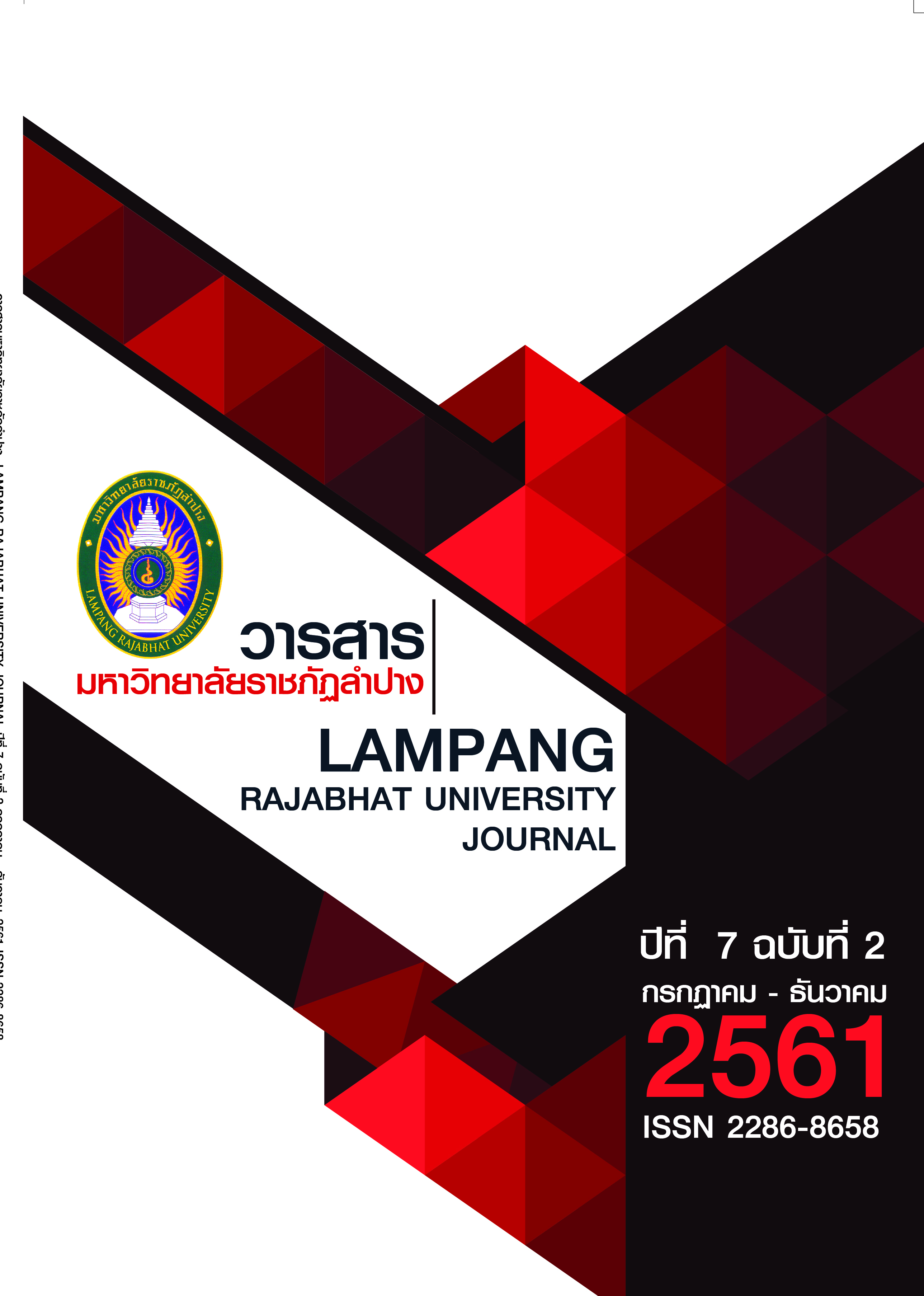การประยุกต์แนวคิดธุรกิจเพื่อสังคมในการพัฒนาการท่องเที่ยวอย่างยั่งยืน : กรณีศึกษาชุมชนบ้านซาวหลวง จังหวัดน่าน ประเทศไทย
คำสำคัญ:
ธุรกิจเพื่อสังคม, การพัฒนาการท่องเที่ยว, ความยั่งยืนบทคัดย่อ
บทความวิจัยฉบับนี้กล่าวถึงประเด็นการพัฒนาการท่องเที่ยวเพื่อความยั่งยืน โดยใช้รูปแบบจากการประยุกต์แนวคิดธุรกิจเพื่อสังคม ในการตอบคำถามด้านความอยู่ดีมีสุขและการสร้างรายได้ในชุมชนที่มาจากการขับเคลื่อนจากคนในชุมชนภายใต้คำถามที่ว่า “การใช้แนวคิดธุรกิจเพื่อสังคมในการพัฒนาการท่องเที่ยวอย่างยั่งยืนได้อย่างไร” ซึ่งการวิเคราะห์รายละเอียดจากบทความฉบับนี้ใช้การวิเคราะห์จากความเข้าใจถึงกรณีศึกษาของชุมชนในภาคเหนือของประเทศไทย ซึ่งโครงสร้างคำถามเป็นลักษณะปลายเปิดในประเด็นคำถามด้านการพัฒนาการท่องเที่ยวภายใต้แนวคิดธุรกิจเพื่อสังคมสำหรับใช้ในการสัมภาษณ์ผู้ที่ดำเนินกิจกรรมเกี่ยวข้องทางการท่องเที่ยว
ข้อสรุปจากงานวิจัยชิ้นนี้เป็นข้อค้นพบในรายละเอียดปัจจัยที่มีส่วนในการส่งผลให้เกิดความสำเร็จต่อการดำเนินธุรกิจเพื่อสังคมด้านการพัฒนาศักยภาพชุมชนบ้านซาวหลวง ที่ตอบสนองการท่องเที่ยวอย่างยั่งยืน ซึ่งมีรายละเอียดประกอบด้วย 3 ข้อหลัก ได้แก่ 1.การสร้างความรับผิดชอบสังคมที่มาจากภายในของบุคลากรในชุมชนบ้านซาวหลวง 2.ปัจจัยที่ส่งเสริมด้านความชัดเจนในการเป็นผู้ประกอบการสังคมของชุมชนบ้านซาวหลวง และ 3.ปัจจัยสนับสนุนศักยภาพการเป็นผู้ประกอบการธุรกิจเพื่อสังคมของชุมชนบ้านซาวหลวง ซึ่งเป็นสิ่งที่มีอยู่แล้วในตัวของสมาชิกชุมชนแต่ละคน ดังนั้น ปัจจัยที่สนับสนุนศักยภาพการเป็นผู้ประกอบการสังคมจึงเป็นสิ่งที่สำคัญในการช่วยกระตุ้นในการขับเคลื่อนให้สำเร็จตามวัตถุประสงค์ โดยงานวิจัยชิ้นนี้มีความท้าทายเป็นอย่างมากในการนำแนวคิดดังกล่าวมาใช้กับชุมชนที่มีความเป็นเมืองสูง ซึ่งอาจทำให้ไม่สามารถผลักดันให้เกิดผลสัมฤทธิ์ในระดับที่สูง เนื่องจากอาจมีพฤติกรรมของสมาชิกในชุมชนที่แตกต่างกันอย่างมาก ซึ่งบทความวิจัยชิ้นนี้สามารถใช้เป็นปัจจัยพื้นฐานในการใช้เปรียบเทียบกับกรณีศึกษาอื่นและทดสอบด้วยวิธีการต่างๆ ในประเทศที่มีความประสงค์จะพัฒนาชุมชนให้มีความเข้มแข็งทางเศรษฐกิจฐานรากด้านการพัฒนาท่องเที่ยวในชนบท
เอกสารอ้างอิง
2.Abbott, T. (2000). Unfinished business. Work for the Dole Co-ordinators’ Conference, 26 July 2000 Publisher, Melbourne.
3.Botsman, P., & Latham, M. (eds.). (2001). The Enabling State: People Before Bureaucracy. Sydney: Pluto Press.
4.Centre for Corporate Public Affairs. (2000). Corporate Community Involvement: Establishing a Business Case. Centre for Corporate Public Affairs in conjunction with the Business Council of Australia, Melbourne.
5.Church, K., Fontan, J. M., Lachance, E., & Shragge, E. (2000). Re-inventing the Trojan horse: Non-profit businesses attack labour market exclusion. Canadian Social Work Review, 17(1), 131–143.
6.Defourny, J. (2001). Introduction—from third sector to social enterprise. In D. Borzaga, J. Defourny, S. Adam, & J. Callaghan (Eds.), The emergence of social enterprise, London: Routledge.
7.Hechavarria, D. M., & Reynolds, P. D. (2009). Cultural norms & business start-ups: the impact of national values on opportunity and necessity entrepreneurs. International Entrepreneurship and Management Journal, 5(4), 417–437.
8.Henton, D., Melville, J., & Walesh, K. (1997). The age of the civic entrepreneur: Restoring civil society and building economic community. National Civic Review, 86(2), 149–156.
9.Janelle, A. (2010). A Comparative Analysis of the Global Emergence of Social Enterprise. Voluntas Journal, 21, 162-179.
10.Monica, D., & Alistair, R. (2011). Ambivalence and ambiguity in social enterprise: narratives about values in reconciling purpose and practices. International Entrepreneur Management Journal, 7, 93–109.
11.Pearson, N. (2001). Rebuilding indigenous communities. In P. Botsman, & M. Latham (Eds.), The Enabling State:People Before Bureaucracy. Annandale, NSW: Pluto Press.
12.Powell, M., & Barrientos, A. (2004). Welfare regimes and the welfare mix. European Journal of Political Research, 43(1), 83–185.
13.Salamon, L., Sokolowski, S. W., & Anheier, H. K. (2000). Social origins of civil society: An overview. In (Eds.), Working Paper of the Johns Hopkins comparative nonprofit sector project no. 38, The Johns Hopkins Center for Civil Society Studies, Baltimore.
14.Seanor, P., & Meaton, J. (2008). Learning from failure, ambiguity and trust in social enterprise. Social Enterprise Journal, 4(1), 24–40.
15.SIMONS R [Internet] (2001), Social enterprise: Partnership for Sustainable Change. Paper Presented at the National Social Policy Conference, Social Policy Research Centre, University of New South Wales.https://www.sprc.unsw.edu.au/nspc2001/papers/Paper6 1.pdf (accessed 10 March 2017).
16.Taylor, I. (2003). Limits of market society: European perspectives. In H. Steinert, & A. Pilgram (Eds.), Welfare Policy from Below, Page 13 – 24.
17.Welford, R. (2005). Corporate Social Responsibility in Europe and Asia: Critical Elements and Best Practice. Corporate Social Review, 13, 31–47.
18.Zahra, S. A., Gedajlovic, E., Neubaum, D., & Shulman, J. (2009). Typology of social entrepreneurs: Motives, search processes and ethical challenges. Journal of Business Venturing, 24(5), 519–532.
19.Phitak Siriwong. (2547). "Theoretical foundations (Grounded Theory) Research Methodology to theorize in developing countries," Library Msk.t. (19): 1 April to September, 2547.
ดาวน์โหลด
เผยแพร่แล้ว
รูปแบบการอ้างอิง
ฉบับ
ประเภทบทความ
สัญญาอนุญาต
บทความลิขสิทธิ์ของวารสารมหาวิทยาลัยราชภัฎลำปาง






